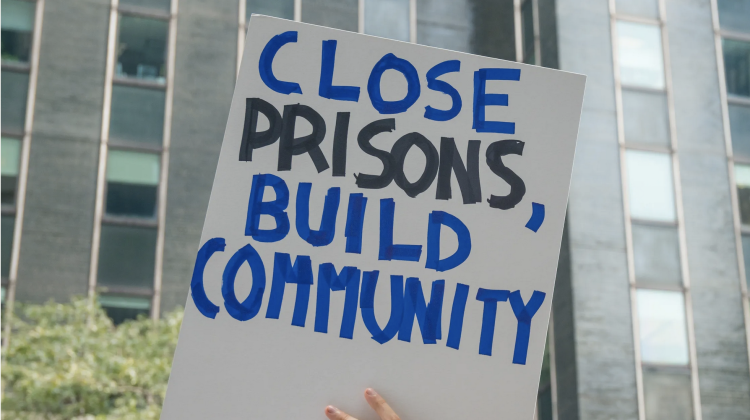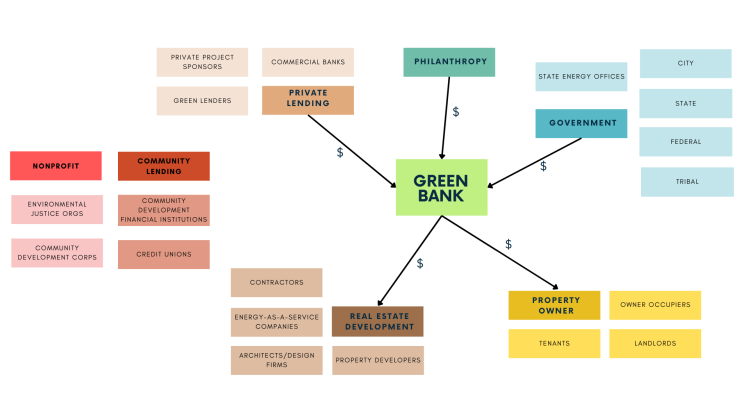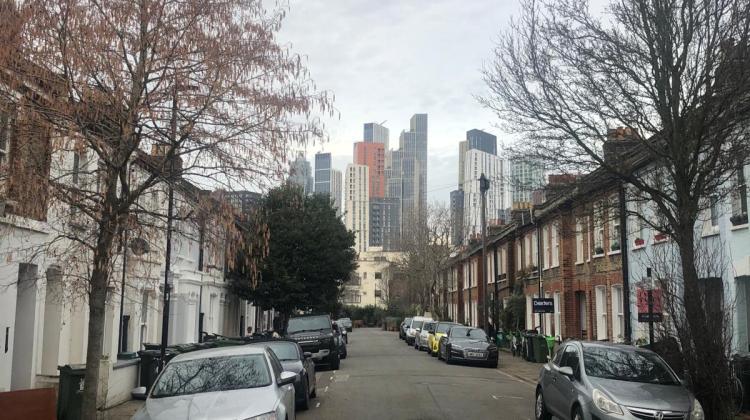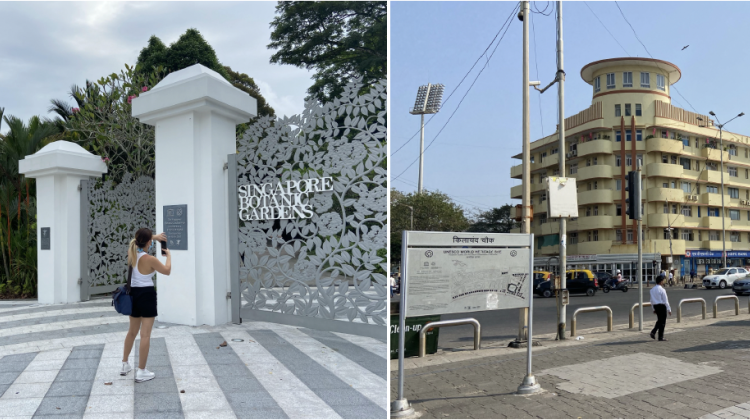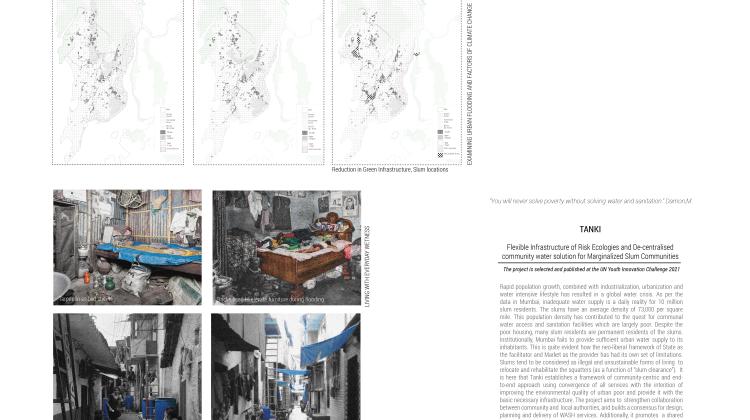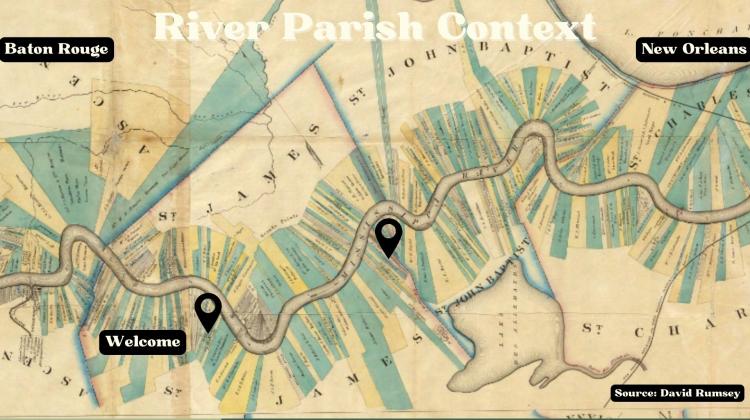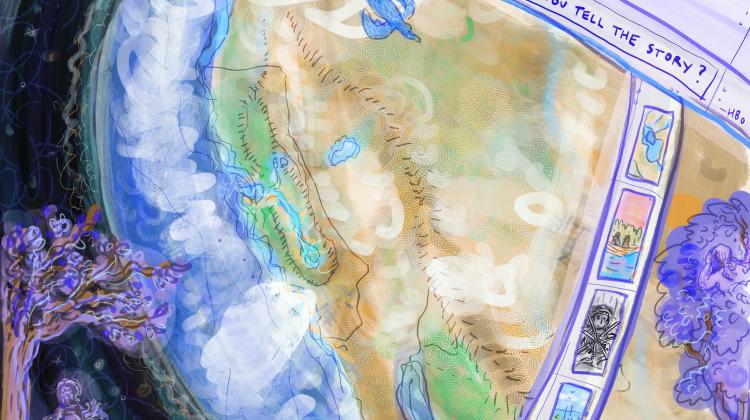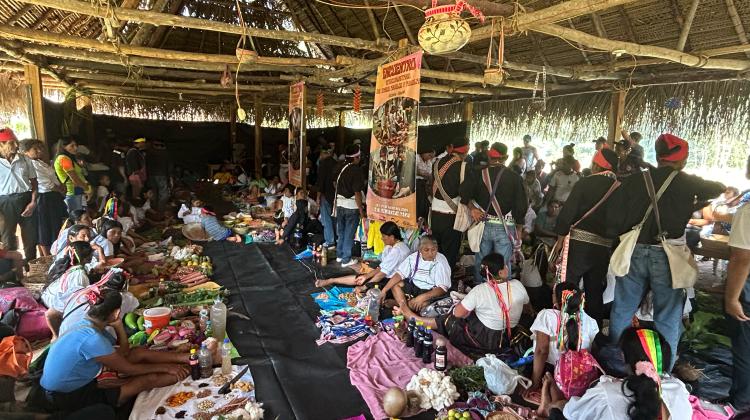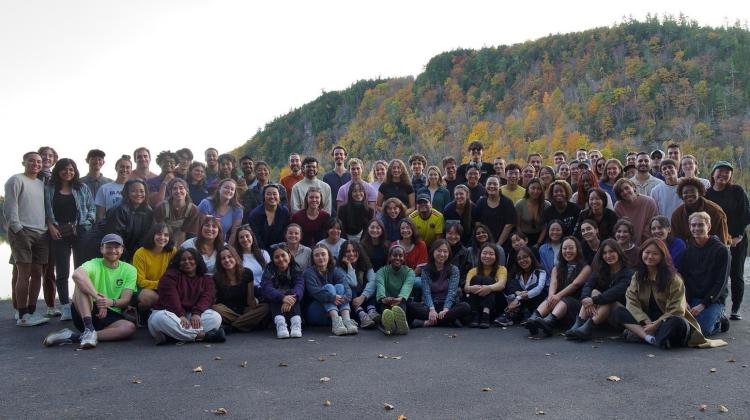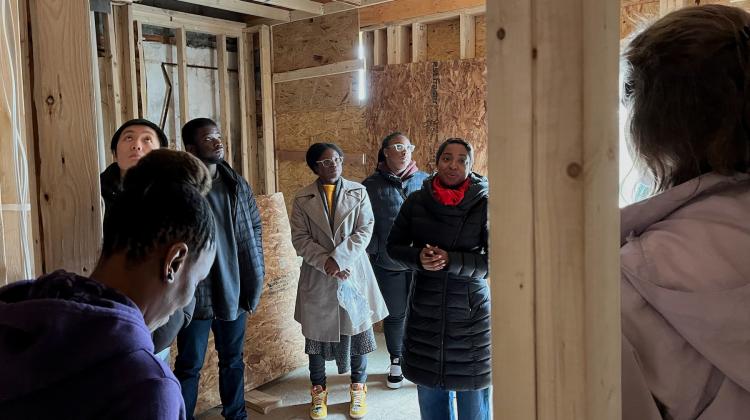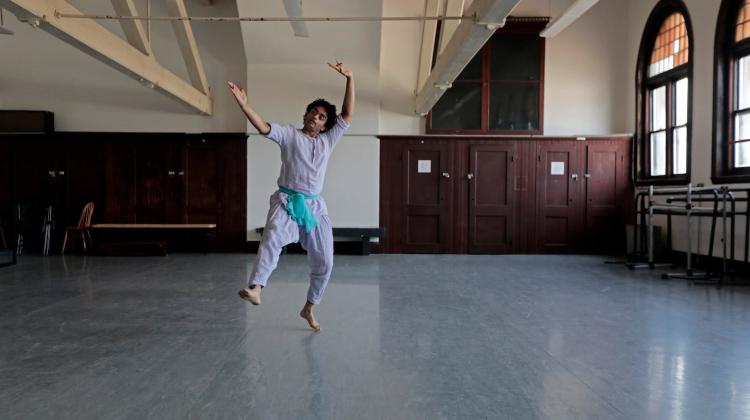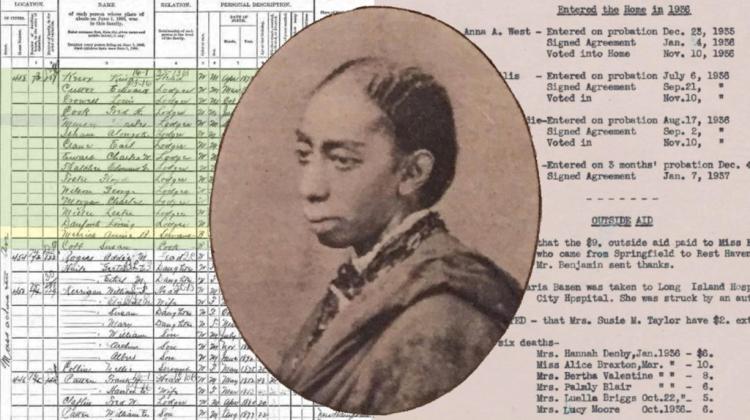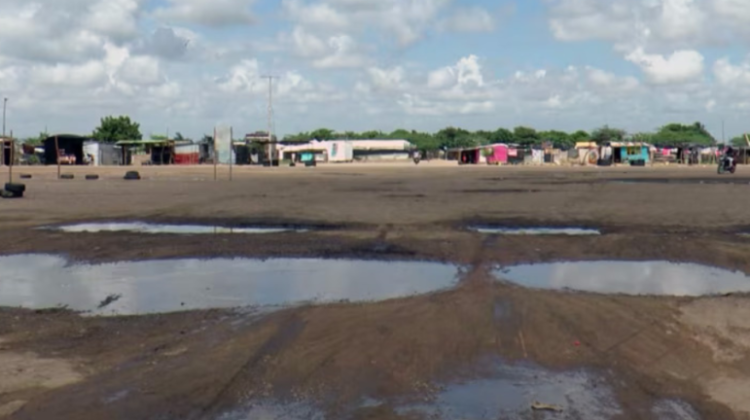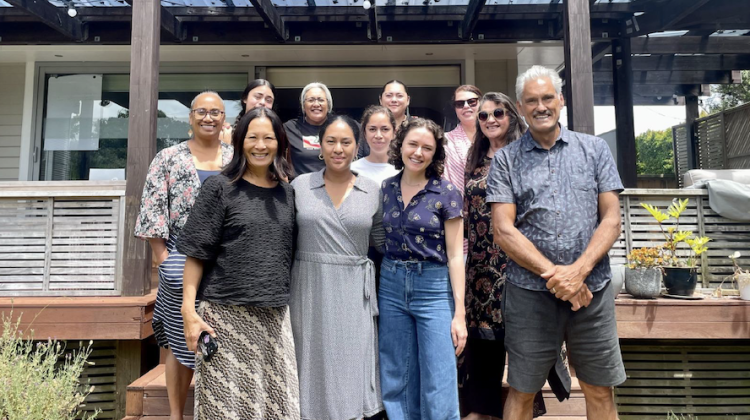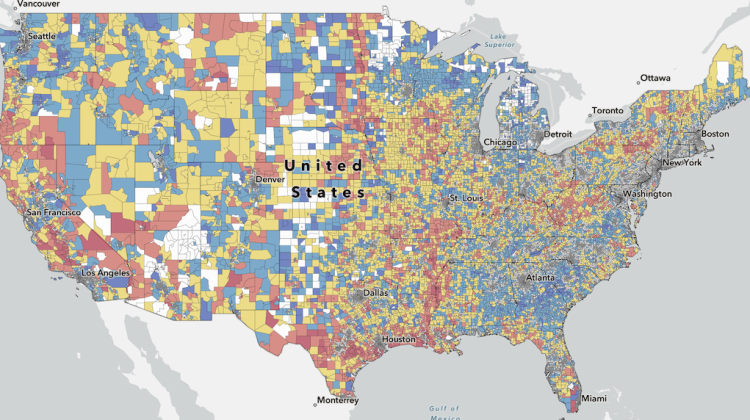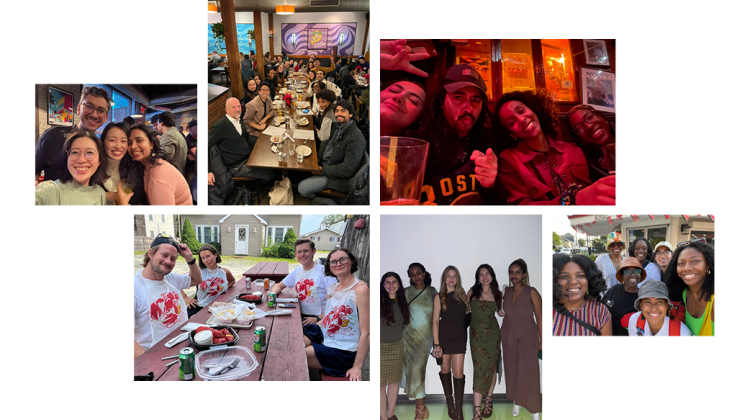Racially Just Research Initiative
- Image
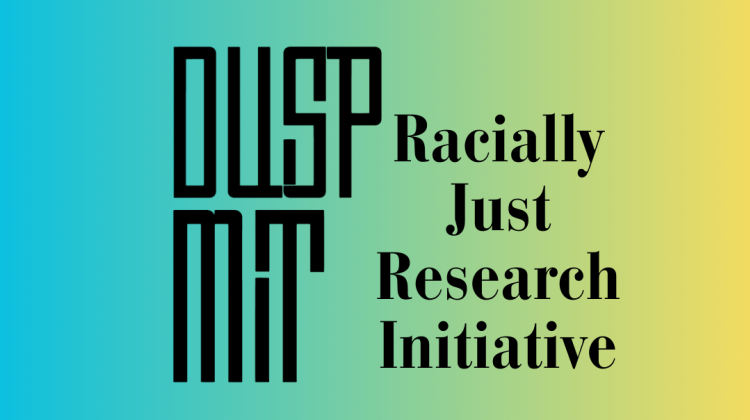
- Image
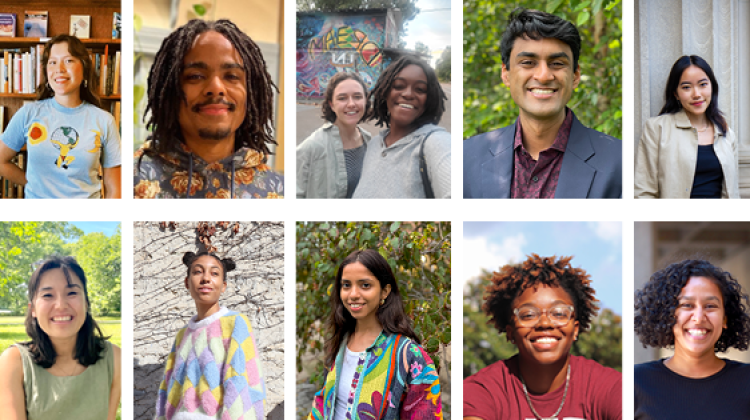
From Left to Right Starting with Top Row: Alejandra A Martinez, Austin Cole, Margaret Haltom, Diamond Thompson-Smith, Milan Chuttani, Cindy Xie, Lia Downing, Simone Delaney, Anushka Shahdadpuri, Alessandra Smith, Aarthi Janakiraman
- Image
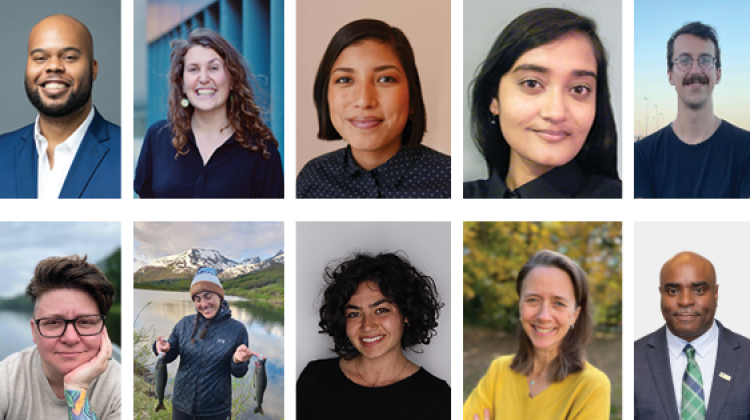
From Left to Right Starting with Top Row: Trace Allen, Hazel O'Neil, Claudia Tomateo, Anisha Gade, Archer Thomas, Nikki Stevens, Devora Barrera Gonzalez, Simmone Stearn, Lisbeth Shepherd, Joe Rowell
- Image

From Left to Right: Natasha Ansari, Bianchi Dy
We seek to center racial justice within DUSP’s research practices across a wide variety of geographies, methodologies, and topical areas.
Overview
The Racially Just Research Initiative grew out of the Racially Just and Decolonial Research Working Group’s efforts and focuses in particular on centering racial justice within DUSP’s research practices.
In November 2023, the Racially Just Research Initiative awarded microgrants for the first time to a total of 22 MCP students, PhD students, and faculty within DUSP to advance this work. Awarded projects span diverse geographies, methodologies, and topical areas ranging from participatory map-making to studying MIT’s internal practices related to racial justice. The microgrant program also creates a community of practice within DUSP to reflect on and share best practices on how to apply the racially just research themes.
People
Natasha Ansari
 Doctoral Student
Doctoral StudentMariana Arcaya
 Germeshausen Professor of Urban Planning and Public Health
Germeshausen Professor of Urban Planning and Public HealthHannah Aronson
 MCP Student
MCP Studentdevin michelle bunten
 Associate Professor of Urban Studies and Housing
Associate Professor of Urban Studies and HousingYeonhoo Cho
 MCP Student
MCP StudentCatherine D'Ignazio
 Associate Professor of Urban Science and Planning
Associate Professor of Urban Science and PlanningTemuulen Enkhbat
 MCP Student
MCP StudentAnisha Gade
PhD CandidateMargaret Haltom
 Doctoral Candidate
Doctoral CandidateHolly Harriel
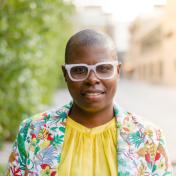 Associate Professor of of the Practice of Democracy and Civic Engagement
Associate Professor of of the Practice of Democracy and Civic EngagementSophia Hasenfus
 Community Building and Student Engagement Officer
Community Building and Student Engagement OfficerEric Robsky Huntley, GISP
Lecturer in Urban Science and PlanningYvette Kleinblock
 MCP Candidate
MCP CandidateAreti Kotsoni
 Doctoral Student
Doctoral StudentDení López
 Doctoral Candidate
Doctoral CandidateKaede Polkinghorne
 MCP Candidate
MCP CandidateWonyoung So
 Ph.D. '25
Ph.D. '25Anne Whiston Spirn
 Professor of Landscape Architecture and Planning
Professor of Landscape Architecture and PlanningJustin Steil
 Associate Professor of Law and Urban Planning
Associate Professor of Law and Urban PlanningClaudia Tomateo
Doctoral StudentLawrence Vale
 Ford Professor of Urban Design and Planning, and Associate Dean, MIT School of Architecture and Planning
Ford Professor of Urban Design and Planning, and Associate Dean, MIT School of Architecture and PlanningDelia Wendel
 Associate Professor of Urban Studies and International Development
Associate Professor of Urban Studies and International DevelopmentSarah Williams
 Norman B. (1938) and Muriel Leventhal Prof of Architecture and Planning
Norman B. (1938) and Muriel Leventhal Prof of Architecture and PlanningHanyong Xu
 PhD Candidate
PhD CandidateChris Zegras
 Professor of Mobility and Urban Planning, Department Head
Professor of Mobility and Urban Planning, Department Head
10 Racially Just Research Tenets
There are ten basic working themes of racially just research. They are described briefly here, and in detail in the paper “Advancing Racial Justice Research In Architecture, Urban Planning, and Allied Fields.”
Theme 1: Explicit Theory of Change
Articulate a theory of change by explicitly identifying avenues by which the research advances racial justice and supports racially just outcomes.
Theme 2: Racialized Difference is Socially Produced
Adopt an explanatory theory or framework that understands racialized difference as the product of social, rather than biological or otherwise naturalizing explanations. Learn more via the short video featuring Catherine D'Ignazio (Cover image artist: Simone Delaney).
Theme 3: Recognition, Reconciliation, and Reparation
Develop research and enact processes that support those injured by racialized injustice in obtaining what they need to heal from and redress the injury. Learn more via the short video featuring Delia Wendel (Cover image artist: Simone Delaney).
Theme 4: Acknowledge Racist Power Structures
Acknowledge racist structures of power and use the research process to share power in order to shift those structures. Learn more via the short video featuring Ceasar McDowell (Cover image artist: Manal Zia).
Theme 5: Use of Methodological Traditions that center lived experience
Be transparent in disclosing how the project’s methodological traditions informs the work, and adopt methods that use decolonial methods and data sources. Learn more via the short video featuring Karilyn Crockett (Cover image artist: Simone Delaney).
Theme 6: Context and History
Acknowledge and understand the limitations of the researchers’ perspectives, and examine context and history through the positionality of the research team and participation of affected communities.
Theme 7: Identify Agency and Assets
Uplift the assets and agency of racialized communities, fostering community self-determination and leadership. Learn more via the short video featuring Jean-Luc Pierite (Cover image artist: Dení Lopez).
Theme 8: Ethical Conduct of Research
Protect human subjects of research by enacting and augmenting the Belmont Report’s ethical principles through an equity lens. Learn more via the short video featuring Sarah Williams (Cover image artist: Simone Delaney).
Theme 9: Positionality and Voice
Center the leadership and decision-making of marginalized communities. Learn more via the short video featuring Eric Robsky-Huntley (Cover image artist: Oussama Ouadani).
Theme 10: Invite Critique and Reflection
Seek critical feedback and reflect throughout the research process.




